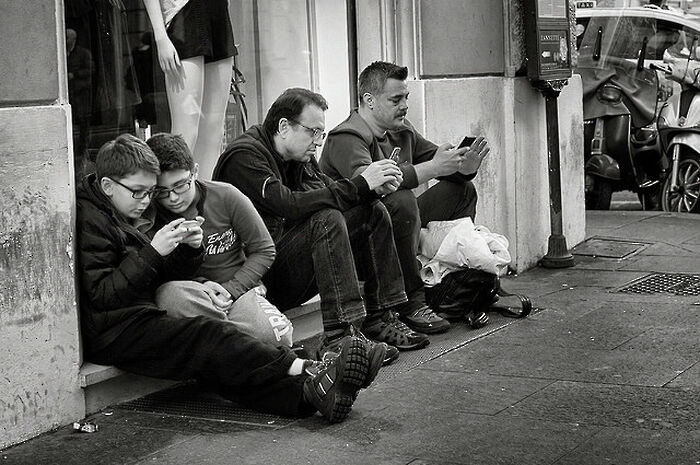Self-care, your way
Can’t afford to buy happiness online? Don’t worry, the best tools are free

Last week was Mental Health Awareness Week. You’d be forgiven for not having noticed. Pitifully little was made of it in Cambridge, despite the fact that its focus this year – stress – is something we could all use some help with in exam term. I’ve been thinking recently about ways to destress and practise self-care at university, but type ‘#selfcare’ into Instagram and the results show only one side of the story: designer bathrooms, body oils, and more avocados than a 1970s paint chart. It's a visual oasis, one that is consciously wholesome and overwhelmingly middle-class – and it simultaneously manages to misrepresent both how gruelling, and how fundamental, the practice of self-care can be
We’re being sold the ominous notion that happiness can be bought after all.
Don't get me wrong. I'm in no way saying that luxurious baths, pampering, and clean eating don't count as acts of self-care, because they absolutely do, as anyone who has felt their various benefits can confirm. In an environment such as Cambridge, where value is so often determined by others, it’s comforting to remember that self-care is defined by exactly that – your ‘self’ – and therefore means different things to different people. But my objection is this: social media, which is generally a great tool to get us all talking about mental health, is increasingly becoming a platform for the commercialisation of self-care.
It's a highly brandable concept, and it's one we’re encouraged, very literally, to buy into. Repeatedly, we’re being sold the ominous notion that happiness can be bought after all – and wouldn't you know it, brand x or y has just the tools for the job.
It's hardly revolutionary to say that companies capitalise on our insecurities, but this seems particularly exploitative when it comes to the self-care industry. Have you heard of the bestselling book Self-Care for the Real World? Well, an online magazine – I won't name and shame – has interviewed the authors to bring us the ‘Self-Care Beauty Shopping List’, a catalogue which includes a foundation for £51 and 10ml of perfume for £58. Not everyone's definition of real world prices. I've already said that self-care means different things to different people, and that’s the way it should be. But the phrase is increasingly painting a sanitised and elitist picture which erases the struggles – and indeed the achievements – of those for whom self-care means managing to eat, or to stop binge-eating, or actually to leave their room.
For many people, especially those who are not in the mental or financial position to make pampering a practicality, looking after yourself in exam term – which seems to glorify stress and set exhaustion as a goal – is about the free things; after all, there’s a difference between treating yourself and treating yourself kindly.
Talk to your friends. Whenever I’m stressed, socialising with my friends is often the first thing I sacrifice. It’s alarmingly easy to get wrapped up in revision at the expense of interaction; “I’m working” is a completely valid reason not to meet up with someone, but if you decline all social invitations on principle in exam term, you might be working too much (yes, it’s possible). Studies have shown that we should be taking a break of roughly ten minutes for every hour of work, and while I imagine this isn’t practical for most of us, it does mean you shouldn’t feel guilty for taking time off to see your friends.
Don’t always prioritise work over comfort. Many of us have been conditioned to treat self-care as a sort of reward: “I’ll get a drink as soon as I’ve finished this question.” “I won’t go to bed until I’ve reached page 200.” “I’ll only go to Sainsbury’s if I’m done working by 10.” Meeting deadlines is understandably most of our top priority, but work should still fit around our basic needs. Eating and sleeping aren’t rewards, they’re rights, and it’s worrying that exhaustion is simply seen as an indication that we’re working a reasonable amount.
Download a free wellbeing app. Okay, my last column may have been about weaning yourself off your phone, but mindfulness apps are the very opposite of mindless scrolling. Whether you want help with calming your breathing during an anxious episode, or an induction to the principles behind Cognitive Behavioural Therapy, there’s a wide variety of free apps available and (despite being an English student) I find them hugely preferable to books on similar topics – partly because they’re more interactive, and partly because they’re much more discreet to use in public. A list of suggestions can be found on the website for Mind.
 News / SU reluctantly registers controversial women’s soc18 December 2025
News / SU reluctantly registers controversial women’s soc18 December 2025 News / CUP announces funding scheme for under-represented academics19 December 2025
News / CUP announces funding scheme for under-represented academics19 December 2025 Features / Should I stay or should I go? Cambridge students and alumni reflect on how their memories stay with them15 December 2025
Features / Should I stay or should I go? Cambridge students and alumni reflect on how their memories stay with them15 December 2025 Fashion / The art of the formal outfit 18 December 2025
Fashion / The art of the formal outfit 18 December 2025 News / Dons warn PM about Vet School closure16 December 2025
News / Dons warn PM about Vet School closure16 December 2025










